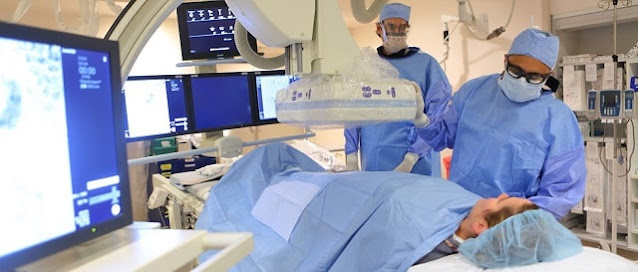
Interventional radiologists are skilled doctors that have been trained to diagnose and treat various diseases without the need for major open surgery. Great interventional radiologists must meet the following qualifications for optimal patient care.
1. Board Certification
Board certification is proof that your interventional radiologist has gone through extra training after completing their initial program. They have passed extra tests and can perform interventional radiology procedures safely.
2. Attention To Quality
Always prioritize quality when looking for an interventional radiologist. They don’t necessarily need to have performed hundreds of procedures. Consider asking the following questions to determine their likelihood to deliver high-quality services.
● How many people have improved after this procedure?
● After how long can I see the results?
● How do you handle unexpected complications?
● What is the expected recovery time?
3. Experience
The best interventional radiologists should be experienced. Most procedures require technical skills and specialists with little or no experience may be unable to deliver good results. A small mistake may have severe consequences.
4. Reputation
Find an interventional radiologist with a solid track record. You can determine their reputation by taking a look at their online reviews. If they have a lot of negative reviews, you may need to find other options. Alternatively, you may get recommendations from your networks.
5. Honesty
The right interventional radiologist should be honest and realistic. They should let you know when you are not a good candidate for a procedure. Your radiologist should be willing to have an honest conversation with you. They should let you know the benefits of specific procedures and potential side effects.
6. Comfort
When trying to find an interventional radiologist, go for one who makes you feel comfortable from the beginning of your appointment to the end. They should be willing to address your questions and concerns. Pay attention to the general feel of the office and how other members of staff treat you.
7. Location
You will probably be visiting your interventional specialist a lot, so it is important to ensure that they are close to your home or job. You should not have to travel hours to reach them. A convenient location makes it easy to show up for all your appointments.
8. Your Unique needs
Every patient has unique needs and it is important to find an interventional radiologist that meets yours. If, for example, you need treatment for uterine fibroids, consider finding a specialist who has a special interest in it.
9. Trust Your Instinct
The process of finding your interventional radiologist is personal and you should not work with anyone who does not feel right. Consider the following questions before making a decision:
● Did you feel at ease the first time you spoke?
● Did they answer all your questions?
● Did they give you enough time to ask questions?
● Did you understand their answers?
Pick The Right Interventional Radiologist
Choosing an interventional radiologist does not need to be a difficult process. Important things to consider include certification, experience, and instinct. If anything feels wrong, you may need to explore other alternatives.
